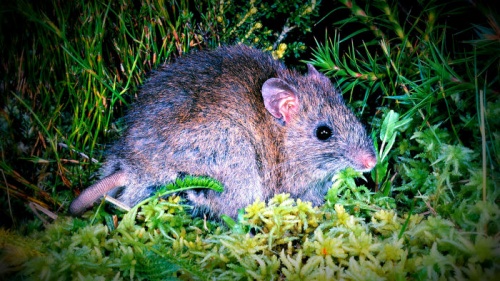THIRTEEN years after the devastating 2003 bushfires burnt much of its habitat, new research shows the nationally declining Broad-toothed Rat’s population is stable in the ACT.
The Broad-toothed Rat is a small to medium sized native rodent which lives in alpine and subalpine swamps and grasslands.
“It is thought the Broad-tooth Rat population declined substantially following the 2003 bushfires which swept through alpine areas of Namadgi National Park. It is pleasing then that an extensive study by the ACT Government and Australian National University has found the species has recolonised burnt areas and now maintains its pre-fire distribution,” said ACT Government Senior Ecologist, Dr Murray Evans.
“The survey took place in 14 alpine bogs within Namadgi National Park with the species detected in 13 of those.
“The study also provides valuable information on the particular habitat which the Broad-toothed Rats seems to prefer, including heath, poa tussocks and sedges.
“As well as climate change which reduces habitat in alpine areas, the species faces other risks such as predation by foxes, habitat degradation by feral pigs and the spread of exotic grasses and plant foot fungus (Phytophthora cinnamomi).
“This research will provide the ACT Government with valuable baseline information on the distribution and habitat requirements of the Broad-toothed Rat. Further population monitoring and vegetation assessments undertaken in the future will enable long-term trends to be identified.”
To see a copy of the study visit environment.act.gov.au
[Photo: Broad Toothed rat, courtesy of G A Hoye @Australian Museum]
Who can be trusted?
In a world of spin and confusion, there’s never been a more important time to support independent journalism in Canberra.
If you trust our work online and want to enforce the power of independent voices, I invite you to make a small contribution.
Every dollar of support is invested back into our journalism to help keep citynews.com.au strong and free.
Thank you,
Ian Meikle, editor





Leave a Reply